11th July 2023
It was a grey and breezy morning as we headed for Acres Down and the view of the forest was superb but it took over an hour before we found a male Goshawk on patrol. He perched up on the top of one of the tallest trees to survey for his breakfast. Four single Crossbills flew over calling along with some invisible Siskins. Firecrests were singing from several spots and we ended up getting good views along with a family of Marsh Tits. It was not really the weather for inverts but the Wood Crickets were chirping and by staring down into the Bracken I managed to find several of these dark little scuttlers.
 |
| Goshawks like a tall lookout |
 |
| Round-leaved Sundew is hard to resist |
 |
| Wood Cricket |
 |
| Wood Cricket - they are tiny |
 |
| Wood Cricket |
Scarce Blue-tailed Damselflies were the next target but on getting to Frogham we decided that the walk required and incoming weather meant that we should go somewhere else although we did see some nice Nuthatches over lunch.

The lunch view was rather grand
I opted for Martin Down in the hope that the weather would hold off long enough. It was the right move and between grey and breeziness we had moments of sunny warmth where Dark Green Fritillary, Marbled White, Chalkhill Blue, Ringlet, Speckled Wood and both Small and Essex Skipper were all new to the list.
 |
| Dark Green Fritillary |
 |
| Marbled White |
 |
| Essex Skipper |
 |
| Marbled White |
 |
| Chalkhill Blue |
 |
| Small Skipper |
 |
| Small Skipper |
 |
| Ringlet |
 |
| Small Copper |
 |
| Small Copper |
 |
| Marbled White |
Six Spot Burnets, Twin Spot Plume and Aethes tesserana were day flyers and there were some Cinnabar cats on the Ragwort and two tents of Marsh Fritillary cats. Bombus lapidarius were the commonest Bumblebee and the Greater Knapweed was their preferred nectar source and Roesel’s Bush Cricket was a good find.
Cinnabar cats Willow Ermine - seem to recall that 1000's were seen that week
Six Spot Burnets Marsh Fritillary cat Grass moth - I will try to remember which Aethes tesserana Bombus lapidarius Bombus lapidarius - male Bombus lapidarius - male
The flowers were still great with the Knapweed smattering the site with purpleness and both Field and Small Scabious bobbing amongst them. The last of the Chalk Fragrant Orchids were still in bloom and I found three Frog Orchids which were a species I had also never seen before. Wild Basil, Thyme and Marjoram were scenting the fields and at ground level there were patches of Squinancywort and near the entrance there were two patches of Clustered Bellflower.
Greater Knapweed Greater Knapweed
 |
| Wild Parsnip |
 |
| Wild Carrot |
 |
| Wild Basil |
 |
| Self Heal |
 |
| Squinancywort |
 |
| Frog Orchid |
 |
| Frog Orchid |
 |
| Marjoram |
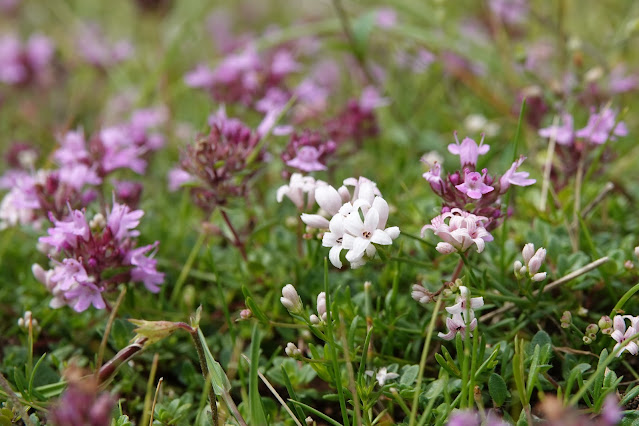 |
| Squinancywort and Thyme |
 |
| Thyme |
 |
| Wayfaring Tree |
 |
| Chalk Fragrant Orchid |
 |
| Rock Rose |
 |
| Rosebay Willowherb |
 |
| Squinancywort |
 |
| Pyramidal Orchid |
 |
| Broomrape sp |
 |
| Pineappleweed - I don't think the crew believed about the smell! |
 |
| Musk Thistle |
Labyrinth Spiders waited on hammocks and a pair of Sicus ferrugineus were in cop. I am not the crew liked the breeding habits of Beehugger flies!
Sicus ferrugineus Sicus ferrugineus
Calocoris roseomaculatus
Eupeodes luniger Red Soldier Beetles Scaeva pyrastri Bombus pascuorum Possibly Philonicus albiceps or similar
There were no Turtle Doves but it was refreshing to hear singing Yellowhammers, Corn Buntings, Skylarks and Linnets and Bullfinches were typically elusive in the car park bushes.
Back at the hotel it was so cool that two male Pantaloon Bees were already ‘roosting’ in the flowerbeds.
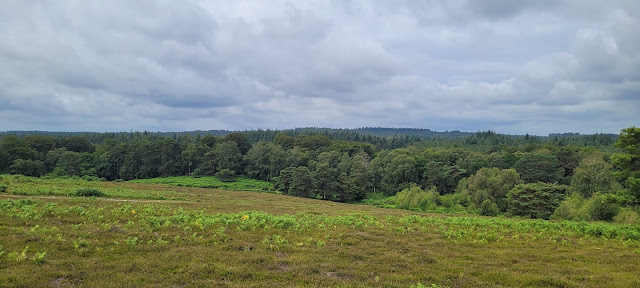














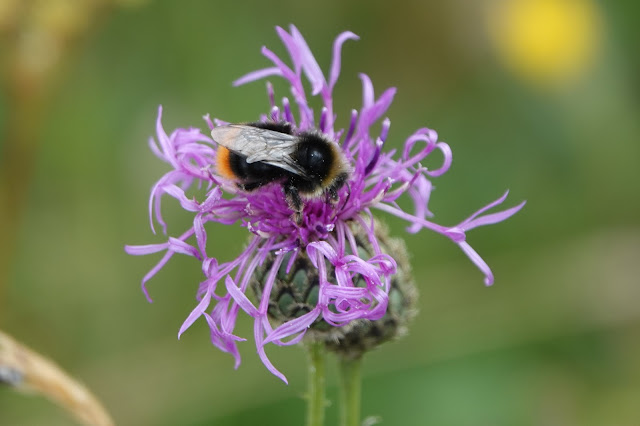
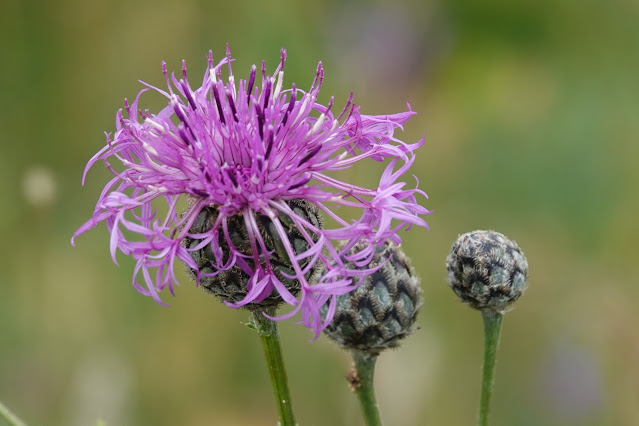






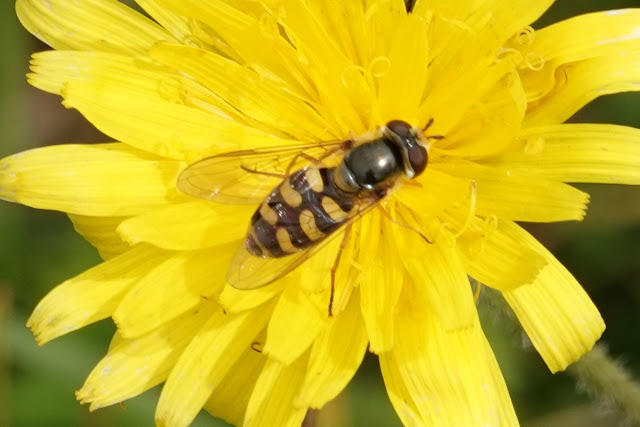




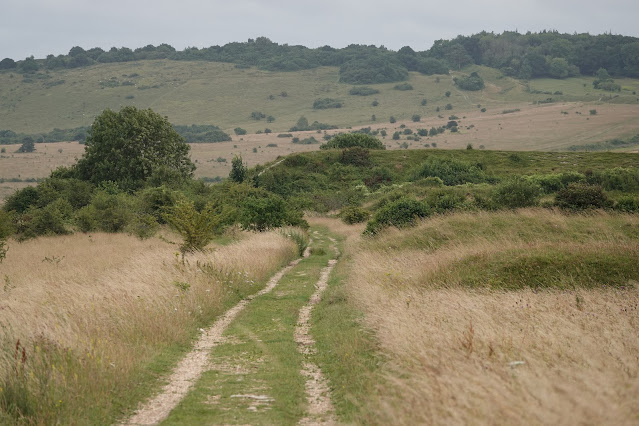


No comments:
Post a Comment